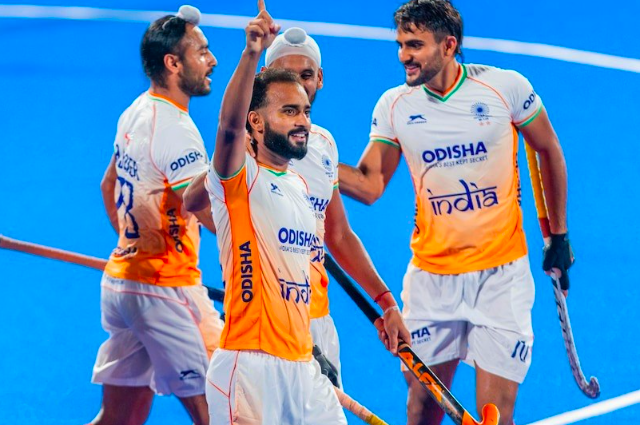The Indian men's hockey team entered the Asia Cup with high expectations, sustained by their impressive world rankings that suggested they would dominate from the outset. However, the tournament's initial stages painted a different picture entirely. The team found themselves grappling with unexpected challenges, struggling to secure convincing victories against traditional rivals China and Japan during the group stage matches. These performances raised questions about the team's readiness and tactical approach.
The concerns deepened when India was held to a frustrating draw against South Korea in the Super4s stage, a result that many viewed as below par given the team's potential and ranking. Critics began to question whether the Indian squad could translate their paper credentials into on-field success when it mattered most.
The Transformation Under Craig Fulton's Guidance
Despite the rocky beginning, head coach Craig Fulton maintained his composure and confidence in his team's abilities. Speaking after the tournament's conclusion, Fulton acknowledged the team's initial struggles but emphasized their remarkable transformation as the competition progressed. His assessment proved visionary as India evolved from uncertain starters to dominant finishers, showcasing the kind of resilience that champions are made of. The coach's tactical adjustments and mental preparation strategies became increasingly evident as the tournament advanced, with the team displaying improved coordination, sharper attacking play and more resolute defensive structures with each passing match.
The Final Showdown and a Masterclass in Execution
The final against defending champions South Korea became the stage for India's complete improvement. The match began with India making an emphatic statement of intent, as striker Sukhjeet Singh found the back of the net within the opening minute of play. His clinical finish, executed with a powerful reverse hit that found the top left corner, immediately shifted the psychological advantage towards the Indian side and set the foundation for what would become a commanding performance.
The Indian team's tactical evolution throughout the tournament became fully apparent in the second quarter when Dilpreet Singh extended their advantage. His 28th-minute goal doubled India's lead and demonstrated the team's improved ability to capitalize on scoring opportunities. The goal was a testament to the squad's enhanced finishing abilities and their capacity to maintain pressure on opponents throughout extended periods of play.
Sealing Victory with Clinical Precision
As the match progressed into the third quarter, Dilpreet Singh once again showcased his scoring prowess by completing his brace with a well-taken goal in the 45th minute. This third goal effectively put the match beyond South Korea's reach and highlighted India's newfound killer instinct in crucial moments.
The fourth and final goal came courtesy of defender Amit Rohidas, who converted a penalty corner with just ten minutes remaining on the clock. This goal not only emphasized India's set-piece proficiency but also demonstrated the team's ability to maintain concentration and execution standards even when victory seemed assured.
South Korea's Courageous but Futile Response
The defending champions, true to their reputation refused to surrender without mounting a spirited challenge. South Korea managed to reduce the deficit through Dain Son, who successfully converted a penalty corner to score what would prove to be merely a consolation goal. Their persistence was further evidenced when they earned another penalty corner opportunity with approximately three minutes remaining in the match.
However, India's defensive resolve, epitomized by Amit Rohidas's crucial intervention proved unbreakable. Rohidas demonstrated exceptional anticipation and courage by rushing out to block South Korea's final penalty corner attempt with his stick, effectively extinguishing any hopes of a dramatic comeback and preserving India's comprehensive victory.
Individual Brilliance and Team Achievement
Throughout the competition, Sukhjeet emerged as India's most prolific scorer, finishing the tournament with six goals to his name. His consistent goal-scoring threat provided the team with a reliable attacking option and proved crucial in several key matches leading up to the final victory.
Speaking after the victory, Dilpreet Singh reflected on the team's strategic approach and its successful implementation. He emphasized how the team's primary objective from the tournament's beginning was to create shooting opportunities and convert them into penalty corners when entering the attacking circle. His comments revealed the methodical planning and tactical clarity that ultimately underpinned India's success.
"From day one, our main goal was to take a shot, convert it into a PC when entering the circle. Today, that worked out perfectly for us," Singh explained, highlighting the precision with which the team executed their game plan in the final.
Historical Significance and Future Implications
This victory held special significance as it marked India's first Asia Cup victory in eight years, ending a prolonged wait for continental success. The achievement represented not just a return to form but also a validation of the team's evolving tactical approach and mental strength under pressure.
Beyond the immediate glory of winning the Asia Cup, this victory served a crucial strategic purpose by securing India's qualification for the upcoming World Cup. The dual achievement of continental success and World Cup qualification provided the team with momentum and confidence heading into future international competitions.
Recognition from the Highest Office
The magnitude of this achievement was further underscored when Prime Minister Narendra Modi personally congratulated the Indian men's hockey team through his social media platforms. This recognition from the nation's highest office highlighted the significance of the victory not just in sporting terms but also in terms of national pride and achievement.
India's journey from a tentative start to continental champions serves as a compelling narrative of sports psychology and tactical evolution. Under Craig Fulton's guidance, the team demonstrated that initial setbacks need not define ultimate outcomes and that true champions are often forged through adversity rather than early success.
The transformation from struggling against China and Japan to comprehensively defeating the defending champions South Korea illustrates the importance of persistence, tactical flexibility, and mental resilience in elite sports. As India celebrates this long-awaited continental triumph, they do so with the knowledge that their best hockey may still lie ahead, particularly with World Cup qualification secured and confidence restored.
. . .
References:

